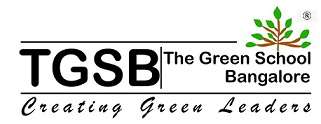
IGCSE Syllabus, Benefits, Disadvantages & Much More!

There is a cloud of smoke around the IGCSE program. From the most talked IGCSE syllabus to the accessibility and the number of schools affiliated with it has piqued a lot of curiosity over the years. On top of that, there are so many choices around and as a parent, you are bound to get confused. On one hand, you want your child to have the best education and on the other, concerned what if it gets too challenging for them. Furthermore, taking a financially suitable decision is also crucial.
All in all, we understand your confusion. So, let’s clear the air and get to the crux of this program. We’ll take you through a detailed FAQ about the details of IGCSE curriculum, the scope of IGCSE in India and of course, IGCSE pros and cons.
So, let’s begin:
What is the IGCSE Program?
The International General Certificate of Secondary Education (IGCSE) is an English language examination and a globally recognized certification developed by the University of Cambridge International Examinations. This examination came into being in the year 1988 and is taken by students at the level of standard 10th of the CBSE or ICSE board.
Students who qualify for this examination are eligible to apply for A-level qualifications in US and UK universities as IGCSE is considered equivalent to GCSE in the UK. The curriculum is further divided into IGCSE Core and IGCSE Extended for some subjects taking into consideration the different intellectual abilities of the children.
What are the salient features of IGCSE?
- Students are graded from A* – G on an eight-point scaling system. According to Cambridge International, IGSCE Core students are expected to score between C D E F G and students with the extended curriculum are expected to achieve between A* A B C D E. Thus, the IGCSE grades vary according to the type of program chosen by the students.
- IGCSE is more suitable for home-schooled children aiming for higher studies abroad.
- English, mathematics, and science are the core subjects and hence beneficial for students aiming literature and technical subjects, both.
- The ICSE curriculum is flexible and even adult students can take the examination.
According to the cambrifgeinternational.org, students have an option of around 70 subjects choose as per the Cambridge IGCSE. More than 190 schools in India are offering this curriculum. Students can select a minimum of 5 subjects to a maximum of 14 subjects depending upon what they prefer to choose, IGCSE Core of IGCSE Extended program.
Following is an overview of the subject included in the IGCSE syllabus:
- First language
- Second Language
- Mathematics
- Social Science
- Arts and Design
- Music
- Business Studies, etc.
To know more about the detailed IGCSE syllabus 2020, click here.
What differentiates IGCSE from ICSE, CBSE, and IB?
- IGCSE is recognized in most of the universities abroad as compared to the CBSE or the ICSE board.
- This board is mostly the choice of parents who are planning to settle abroad in the future.
- Students can select from a variety of subjects to study according to their interests and skills which is one of the unique features that differentiates IGSCE from the other boards.
What are the Advantages of IGCSE?
- IGCSE curriculum inculcates the feeling of globalization and oneness in the students and helps reduce the cultural divisions.
- IGCSE syllabus is uniform and hence serves as an apt choice for students who want to pursue education or settle abroad.
- This program has a more practical approach in helping the students build good skills such as analytic, communication and cognitive skills, problem-solving ability and personality development, etc.
- Students of the IGCSE board have an edge over the students of other boards because of the vastness of knowledge it provides and uniformity of education throughout the world.
What are the Disadvantages of IGCSE?
- Schools affiliated to IGCSE charge huge fees because of the luxurious facilities it provides and the expense of the staff who qualify to teach such programs.
- The curriculum is vast and can become stressful for the students and the reference books and tuitions are not easily available.
- The grading method is also strict and has a repute of being one of the extensive education programs in India on a scholastic level.
This sums up the article from the objectives of IGCSE to the pros and cons of this program. Everything you need to need to know before you make a decision. This education program provides excellent knowledge and skills to make the students ready to face any challenge and settle anywhere across the world. But on the other hand, it is not accessible compared to the CBSE board and also heavy on the monetary side. It is important to consider all the pros and cons of the curriculum that best suits your child’s personality and intellect and then start your school search. But there’s always one thing to remember, Zedua is always there for you from choosing the right board to the perfect school for your kid.
We are coming up with a similar article about the International Baccalaureate (IB), so stay tuned!!
To know similarly detailed information about the ICSE board, click here and for CBSE Board, click here.
Visit www.zedua.com for more details or just to explore who we are. Also, if you have any scholastic query from school admission updates to the fee structure of any school, etc., just drop in your question at [email protected] and team Zedua will be more than happy to help you!
Happy Learning!
Read Also:
Differences Between CBSE, ICSE, IB, IGCSE & State Board
Difference Between IGCSE Board and IB Board
Recomended Blogs

It indeed is not easy to learn something new! Getting out of your comfort zone and learning something

Zedua
2 years ago

Many successful people have attributed their success to the practice of Meditation. How great i

Zedua
3 years ago

Hybrid classes is the trend in the air or was it already there in an implicit form? Questions are ofte

The Green School Bangalore
3 years ago
